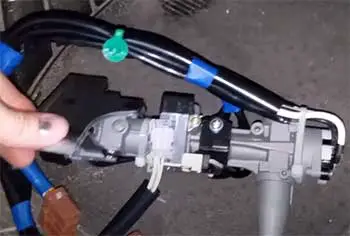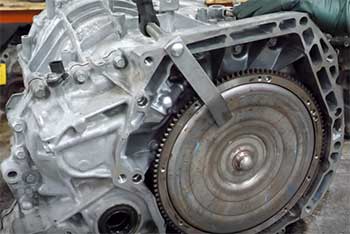When you’re ready to hit the road in your Honda CR-V, the last thing you want to see is a car that won’t start or an alarming “electric parking brake problem” alert flashing on your dash. These issues are quite a headache, but you’re not alone.
Many Honda CR-V owners face these challenges, and the good news is, most times, they’re solvable. Let’s dive into some of the common causes and what you can do about them.
Understanding the Honda CR-V Starting Problem
The Honda CR-V is known for its reliability and superior engineering. However, like any vehicle, it may occasionally refuse to start. The usual suspects are the ignition switch, battery, fuel pump, or starter motor.
- Ignition Switch

One common reason your Honda CR-V won’t start could be a faulty ignition switch.
The ignition switch is the component that initiates the vehicle’s electrical system.
When you insert your key and turn it, the ignition switch is supposed to send an electrical signal to the starter motor, fuel system, and ignition system that it’s time to get to work.
But if the ignition switch is faulty, this vital signal may not be sent, and the vehicle won’t start. One way to check if your ignition switch is the problem is to note if there are any difficulties or abnormalities when you turn the key.
If you find that the key turns very freely or feels slack, the ignition switch might be the culprit.
Keep in mind that issues with the ignition switch can be complex and difficult to diagnose. Therefore, it’s always best to consult a professional mechanic if you suspect the ignition switch is causing the problem.
- Battery Issues
A common issue that can prevent your Honda CR-V from starting is a problem with the battery. The battery provides the initial power to crank the engine and start the car.
If the battery is dead, weak, or has a poor connection, your Honda CR-V might not start.
Symptoms of a battery issue include hearing a clicking sound when you turn the key, the lights on your dash being dimmer than usual, or not being able to start the car in cold weather.
If you suspect a battery issue, try jump-starting your Honda CR-V with another vehicle. If it starts, then your battery was likely the issue. Also, regularly testing your battery and replacing it as needed can prevent starting problems down the road.
- Starter Motor
Another essential part of the starting process is the starter motor. The starter motor is responsible for physically turning or “cranking” the engine to start the combustion process.
If the starter motor is faulty or worn out, it won’t be able to do its job, resulting in a Honda CR-V that won’t start.
One telltale sign of a faulty starter motor is hearing a grinding noise when you try to start the car, similar to the noise you hear if you accidentally try to start the car when it’s already running.
Again, diagnosing a faulty starter motor can be complex and typically requires professional equipment and expertise. If you suspect your starter motor is the problem, it’s advisable to take your Honda CR-V to a trusted mechanic.
- Fuel System Issues
Lastly, your Honda CR-V won’t start if it’s not getting the fuel it needs. The fuel pump, fuel injectors, and fuel filter are all crucial components of the fuel system. If any of these parts are malfunctioning, it could lead to starting problems.
A weak or failing fuel pump might not supply enough fuel to the engine. Similarly, if the fuel injectors are dirty or clogged, they might not deliver the correct amount of fuel to the engine.
Signs of fuel system issues include a car that sputters and then dies shortly after starting or a car that struggles to maintain power when under stress, such as when going uphill.
If you suspect a fuel system problem, a professional mechanic should be able to diagnose and fix the issue. Regular maintenance, including changing the fuel filter and cleaning the fuel injectors, can also help prevent these issues.
Electric Parking Brake Issue in Honda CR-V

Next, let’s talk about the notorious “electric parking brake problem” in the Honda CR-V.
If you see this alert, it’s indicating a fault with your vehicle’s electric parking brake (EPB) system.
The EPB is a key feature of the Honda CR-V, offering a safer and more convenient parking brake mechanism.
Instead of a manual handbrake, the CR-V uses an electrically controlled system to engage and disengage the parking brakes. But like any other electronic system, it’s not immune to issues.
Commonly, this problem arises from electrical faults, a dead battery, or an actual mechanical issue with the braking system. Also, incorrect usage of the EPB can trigger the alert. For instance, trying to engage the EPB while the car is moving or disengage it without pressing the brake pedal might result in the alert.
How To Troubleshoot The Honda Electric Parking Brake Problem?
Now that we’ve highlighted the potential causes of the electric parking brake problem, let’s move onto troubleshooting.
Firstly, check the vehicle’s battery status. If the battery is low or dead, the EPB might not function correctly, triggering the problem alert. In this case, charging or replacing the battery should solve the issue.
If the battery is fine, you may be dealing with an electrical or mechanical fault in the braking system. Professional inspection and diagnosis are crucial here, as this issue could be a symptom of a more significant problem.
Also Read: Issues With 2014 Ford F150 Transmission.
Frequently Asked Questions (FAQ)
When your Honda CR-V displays an “electric parking brake problem” alert, it means that the vehicle has detected a fault with the electric parking brake system. This could result from a variety of issues, including a low or dead battery, electrical faults, or mechanical problems with the braking system.
The electric parking brake issue in the Honda CR-V refers to any malfunction or fault detected within the vehicle’s electric parking brake system. This problem could stem from issues such as incorrect usage of the EPB, a dead or low battery, or electrical or mechanical faults in the brake system.
Releasing the electronic parking brake on a Honda CR-V with a dead battery can be a bit tricky. Honda recommends contacting a professional service center in such cases, as improper handling may cause damage to the vehicle. However, one option is to manually release the brake by locating the emergency release point beneath the vehicle and disengaging the brake cable. This should be done with caution, and the vehicle should be properly secured to prevent movement.
Resetting the parking brake on a Honda CR-V involves pressing the brake pedal and then pressing the electric parking brake switch while holding the brake pedal down. If the light indicator goes off, the parking brake has been successfully disengaged.
Final Thoughts
In conclusion, while the Honda CR-V is a reliable and well-loved vehicle, it’s not exempt from occasional issues like a no-start problem or an electric parking brake alert.
Understanding these problems, their potential causes, and how to troubleshoot them can go a long way in ensuring your Honda CR-V continues to serve you well.

